Dragon Boat Festival: A Joyful Gathering of Chinese and International Students
On the end of May, the "Dragon Boat Festival: A Joyful Gathering of Chinese and International Students" cultural experience event for international students, jointly organized by the the School of Economics and Management of Tongji University, International Students Office of Tongji University, and the International School of Tongji University was successfully held at the Tongji Building A. The event attracted international students from all over the world. They actively participated, jointly appreciating the charm of traditional Chinese culture and injecting a rich cultural atmosphere into the campus.
On the day of the event, we gathered to celebrate the Dragon Boat Festival, a cherished cultural heritage of the Chinese people. With a history spanning thousands of years, this festival carries profound meaning—honoring the poet Qu Yuan, promoting health, and uniting communities in joy.Participants experienced the unique charm of Dragon Boat Festival together:Taste zongzi (sticky rice dumplings), savoring the taste of history;Hang mugwort leaves, embracing ancient beliefs of protection.And feel the rhythm of unity, just like the drumbeats of dragon boat races.

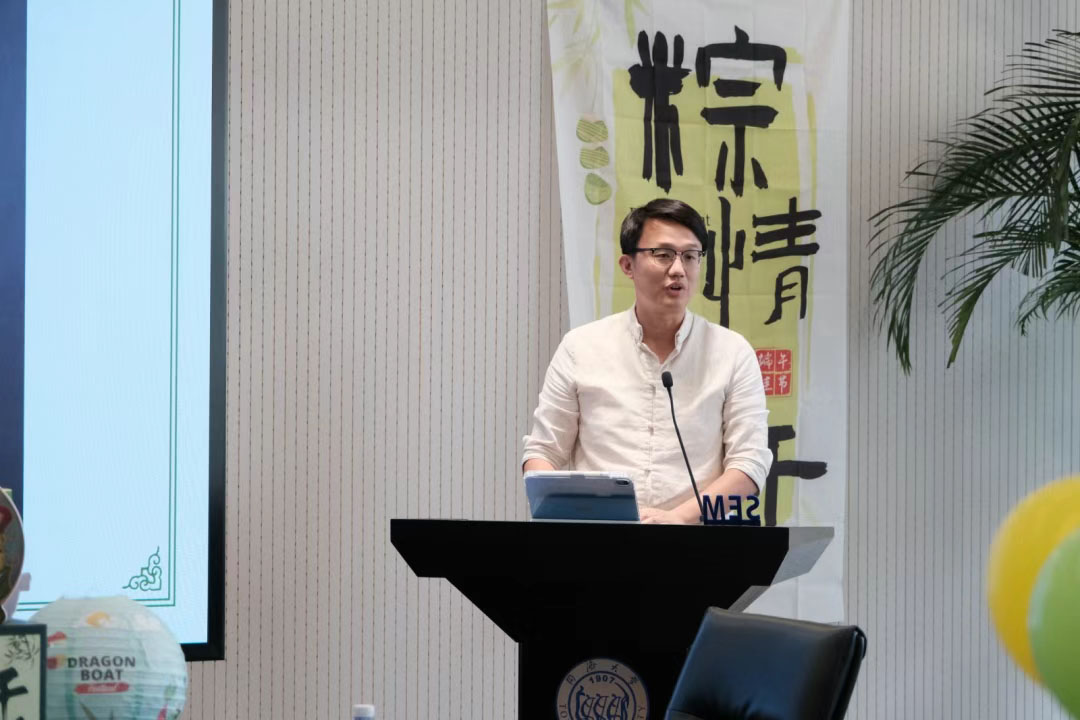
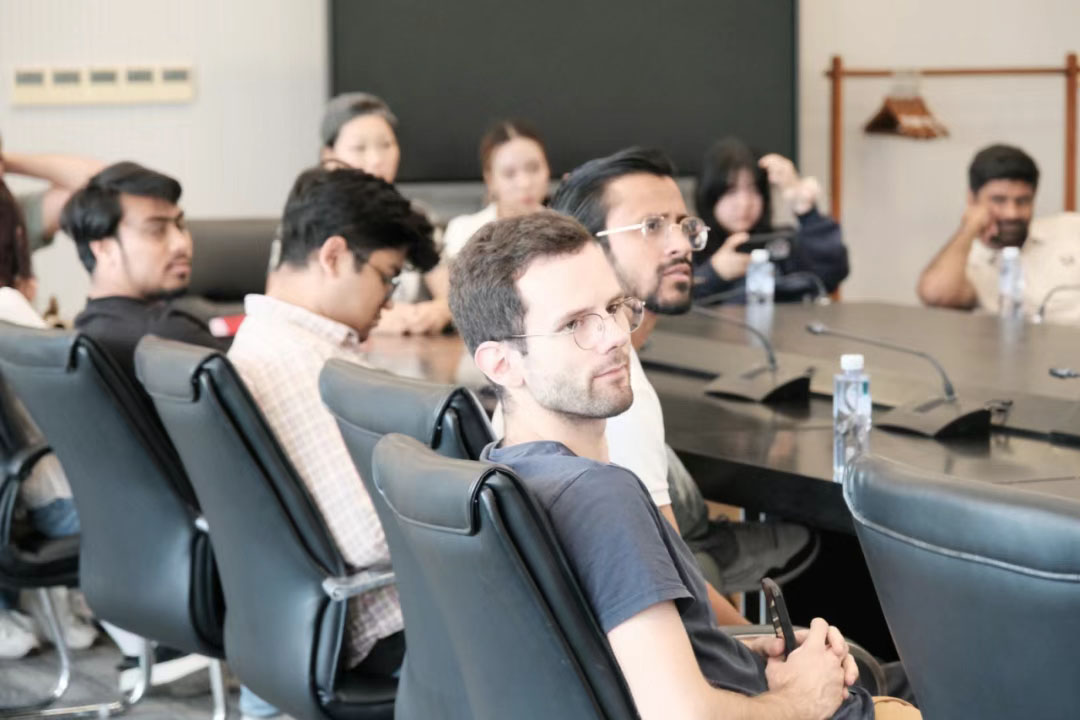
At the beginning of the event, Mr. Linhua Zhang from the International School of Tongji university delivered a speech. Mr. Zhang emphasized the significance of the exchange and mutual learning of Chinese traditional culture, and sincerely hoped that the students would fully experience joy in the activities.Through the vivid and engaging explanations and guidance of the volunteers, the participants gradually immersed themselves in the unique charm of the Dragon Boat Festival and appreciated the profound cultural heritage of the festival.
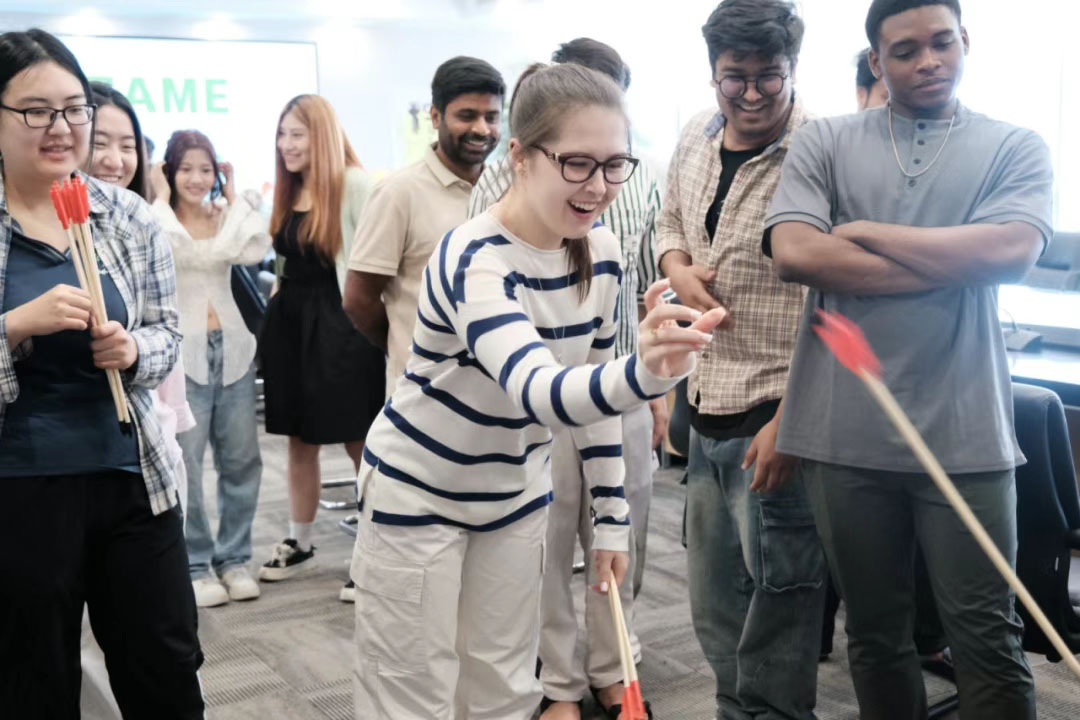


On-site, there were the quaint throwing pot game and the thrilling "Shooting the Five Poisons" activity. Led by captains, groups took part in these two Dragon Boat Festival customs as teams, scoring points by completing challenges."Shooting the Five Poisons", an ancient custom to ward off evil, uses patterns of scorpions, centipedes, toads, geckos and snakes. People shoot with bows, praying for peace.The event was lively, full of laughter. Participants experienced traditional folk charm, understood the cultural meanings of "warding off evil, unity" in Dragon Boat Festival customs, and felt Chinese civilization’s depth through immersive interaction.
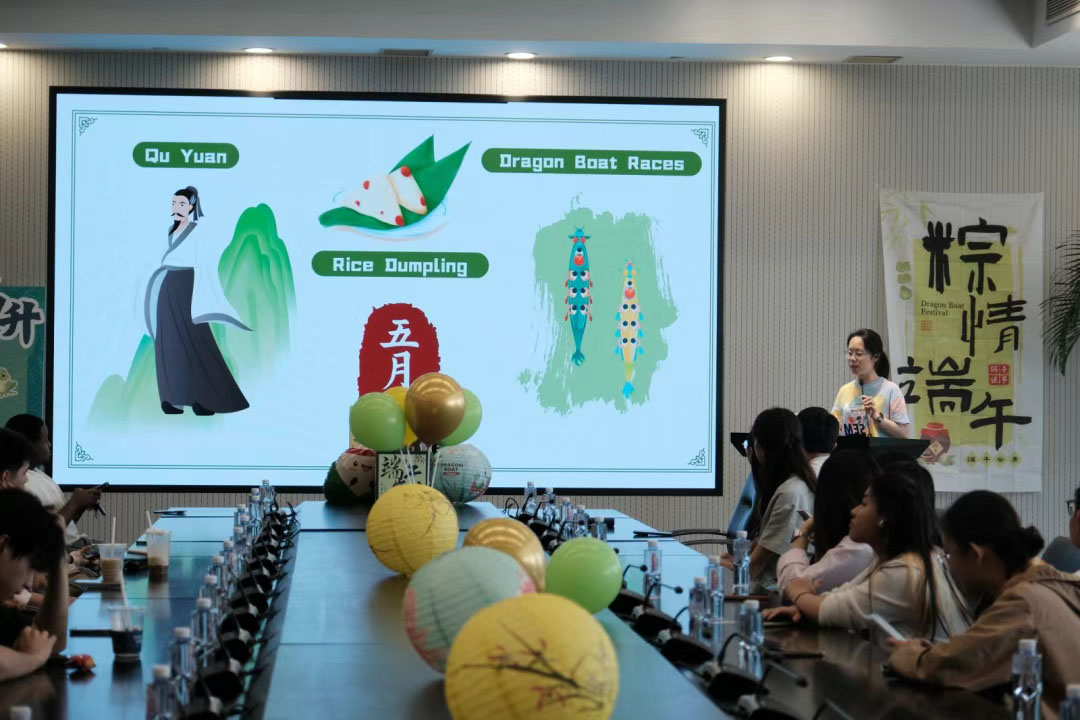
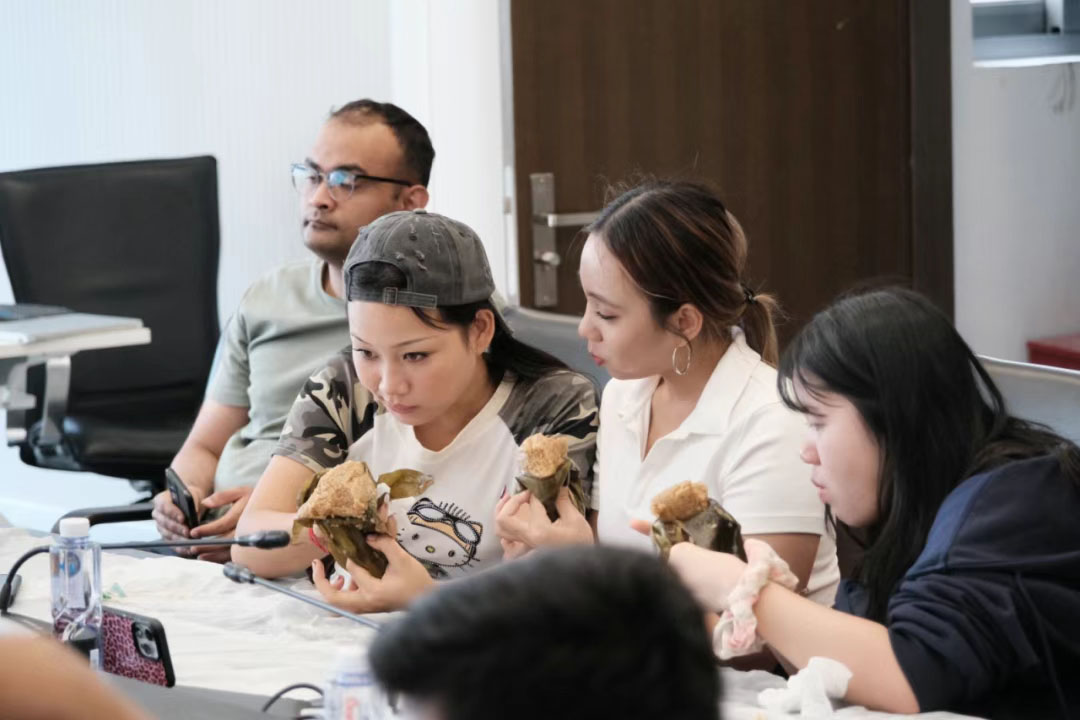

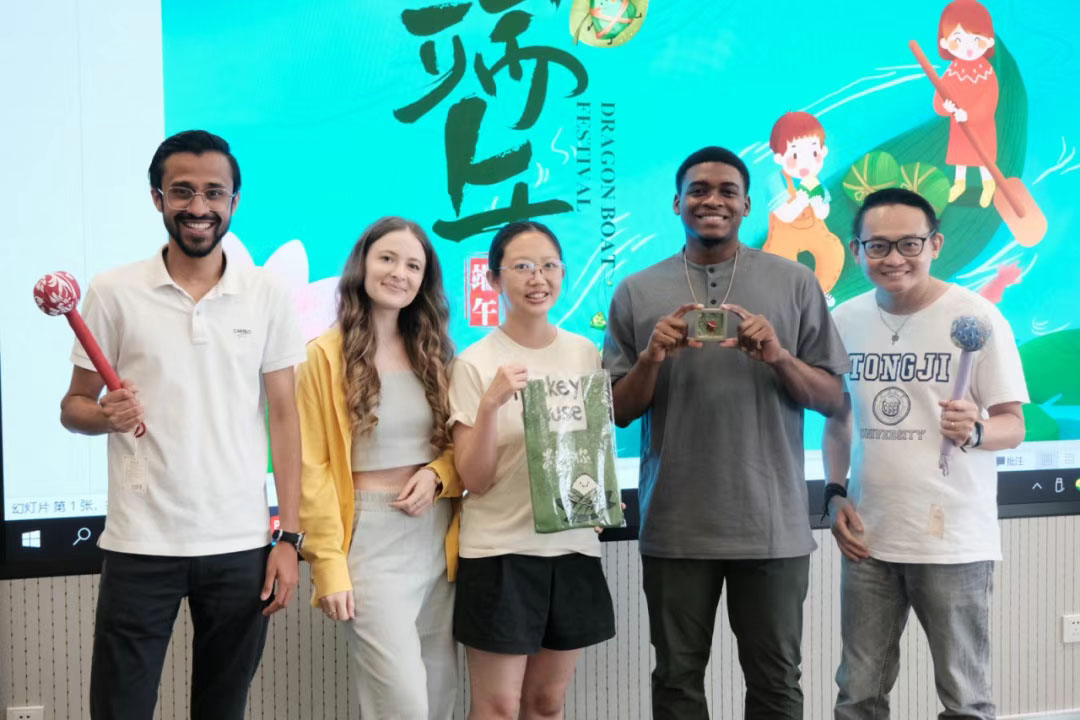
Next,everyone took on a journey through time to explore the origins of the Dragon Boat Festival. Starting from ancient legends and delving into traditional customs, the mysterious veil of the festival was gradually lifted layer by layer. Meanwhile, the host deeply interpreted the cultural significance of zongzi, showing how it evolved from sacrificial offerings into a festive delicacy that now embodies reunion and blessings.To add more fun, a Dragon Boat Festival knowledge quiz was held on the spot. The quiz covered all aspects of the festival, with questions like "Who is the Dragon Boat Festival in memory of?" and "Why are zongzi wrapped in leaves?" In the intense atmosphere of the competition, everyone gained a wealth of practical knowledge about the Dragon Boat Festival. They also won exquisite small prizes featuring Dragon Boat Festival elements, creating wonderful mementos for this cultural journey.
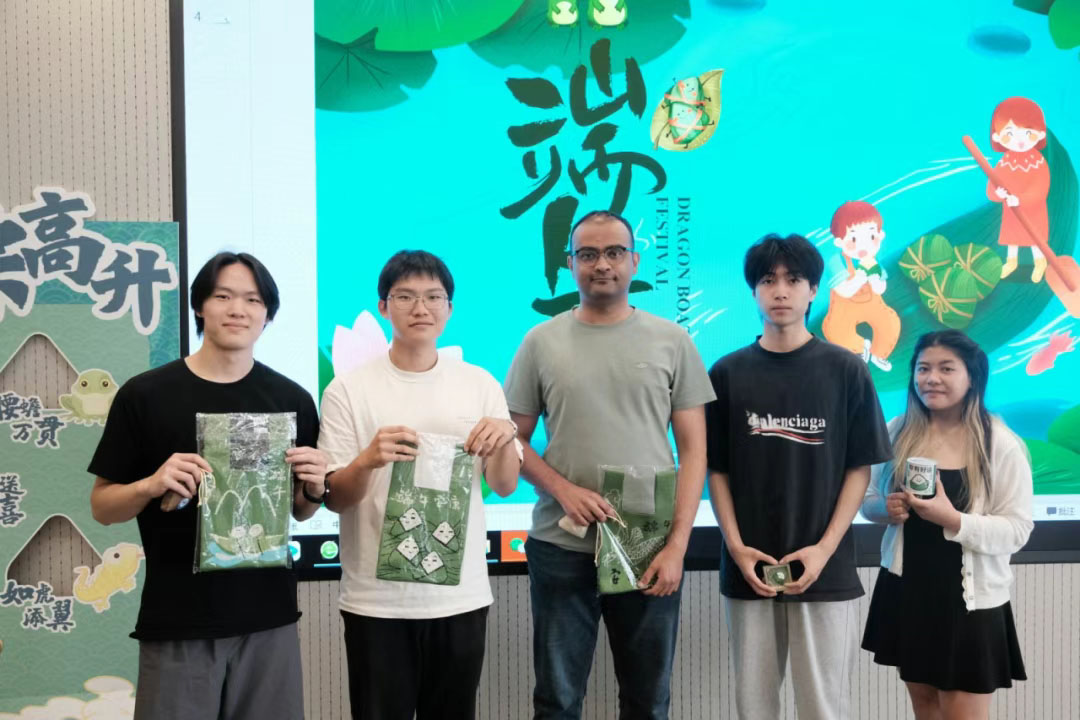
Finally, a science popularization on traditional Chinese medicine culture bagan, unraveling the symbolic meaning of mugwort in dispelling evil and preventing plagues. In TCM, mugwort is regarded as a "treasure plant"—its unique aroma can effectively inhibit the growth of pathogens, which is why the ancients endowed it with the beautiful implication of warding off evil and diseases.With great enthusiasm, everyone then tried their hands at making sachets on the spot. They carefully filled the sachets with mugwort and used needles and threads to outlined their unique interpretations of traditional Chinese culture.
This Dragon Boat Festival event has sparked a warm response among international students at Tongji University. It not only has ignited a wave of enthusiasm for learning traditional Chinese culture but also helped them better integrate into campus cultural life.This was not merely a themed cultural activity; it was also a journey of dialogue with tradition. Amidst laughter and joy, everyone continued the cultural roots and created wonderful memories together at Tongji.
Source: Tongji University
